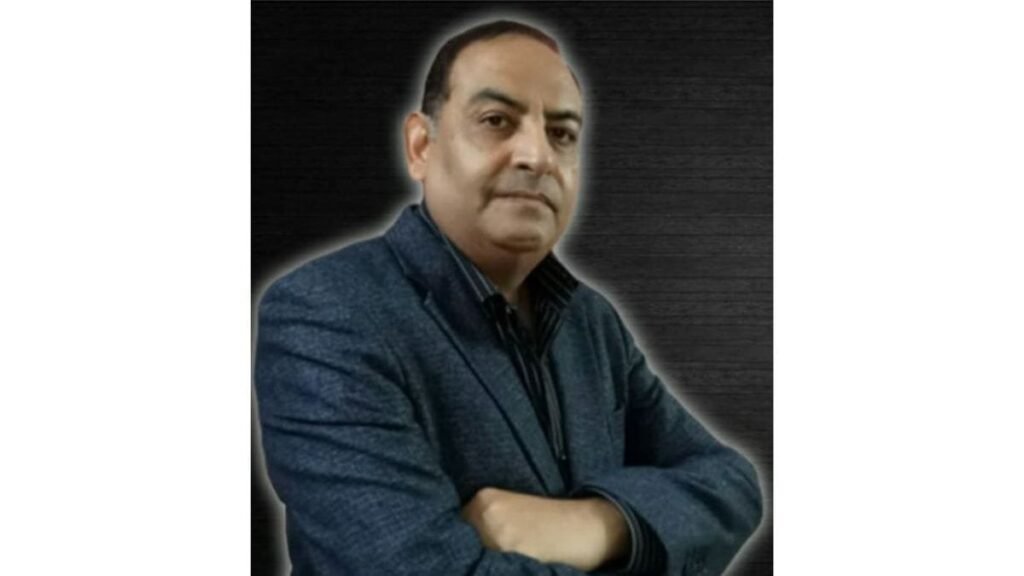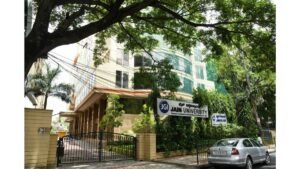How to reduce burden of court cases in India- A blueprint by Narender Malhotra

New Delhi [India] October 11: Narender Kumar Malhotra points out that there are approximately 2.5 crores of cases pending in the judicial courts of India and an average duration for the disposal of a case is approximately 7-10 years in the trial court and it may take 15-20 years for its disposal in the appellate courts i.e. session courts, High courts and supreme court. It is relevant to mention here that this data partly reflects the no. of cases pending in the revenue courts; this fact has been concealed to put up a rosy picture to the masses. So, practically speaking the Indian judicial system justifies the dictum that “Justice delayed is justice denied”. This is the prevalent predicament of our legal system which has caused havoc for millions of peoples throughout the length and breadth of India.
The Govt. of India have made certain amendments on 1st July 2024 in the IPC, CRPC and Indian Evidence Act. Through these amendments, a clarion call has been made that now the new changes provide for a time-bound disposal of criminal and civil cases. These amendments (even the names of all the three acts have been changed) have raised new hopes in Indians that the justice disposal process will gain momentum, which is simply a big farce. It is because of the reason that until and unless the infrastructure is not provided to the institution of judiciary, it is merely a wishful dream to think about speedy disposal of justice in India.
This is the problem and now Malhotra comes to the solution part of it, which is not only long overdue but will also provide great relief for the sufferers of this judicial system and that is, to organize Lok Adalats throughout the nation in a logical, technical and practical way.
Since, he has been an executive magistrate, that is why, he got many opportunities to organize Lok Adalats in his area of jurisdiction. He not only suggests a practical way to organize Lok Adalats but also discusses a full-proof and error-free blueprint for the successful organization of Lok adalats.
Malhotra opines that to organize Lok Adalats successfully, we have to follow the below given steps.
Firstly, Coordination between judiciary, executive and police administration is a compulsory step. Before independence of India, during the British regime, the District Magistrate was the supervisory officer over courts for criminal matters, revenue courts and police administration. But after independence, the judiciary (courts for criminal matters) was completely separated. Thereafter, the police administration was also separated with a nominal control of District Magistrate over police. All that led to the disastrous state of affairs resulting in the huge pendency of court cases throughout India because of lack of coordination and communication among the above-mentioned three wings of administration. To sum up, a coordination committee of CJM, CTM and DSP at district level will be very effective to give results.
He strongly believes that the outcome of the meetings of such committees will unravel an amazing fact that there are thousands of cases pertaining to revenue courts which have been irrationally dragged into the sphere of judicial courts under a misutilized and pseudo term “to be decided in due course of law”. This is a clear usurpation of the authority of revenue courts in a very clever manner by the judicial system and consequently, it will, first of all, sort out the cases belonging to the revenue courts and judicial courts. This mechanism will reduce the burden of the cases of judicial courts to a considerable extent
Secondly, the Incentivization (honorarium) for legal and paralegal volunteers, better to be replaced by the designation i.e. legal and paralegal officials, which are working as volunteers without any interest in the disposal of the cases. So far as the expenses are concerned, the govt. of India can provision to promulgate and launch the scheme i.e. an amended NAREGA (Legal). Retd. Tehsildars, Kanungos and Patwaris, village-level workers of Political parties i.e. Zila Parishad members, Block Samiti Members, Sarpanches, Panches, Patwaris, Gram Sachivs, Asha and Anganwadi Workers should be made paid volunteers(officials) for the disposal of cases by working on “compromise Formula”.
Thirdly, A pre-organization and follow-up procedure for the event of Lok Adalats. He points out that, at present, the Lok Adalats are only rare events which are too formal without any pre-organization and follow-up mechanism and the result is zero. Only big face-saving news are printed and aired, which boast of the false achievement of Lok Adalats, which are far from reality. Neither any proper information for holding of Lok Adalats is made nor any case history is recorded about each case presented before the presiding officer for the disposal on the compromise basis. There is a total lack of coordination among the different wings of administration i.e. civil, judicial and police.
Fourthly, he strongly suggests the utilization of the infrastructure of the office of Block Development and Panchayat Officers for holding Lok Adalats all the year round. There are enough rooms available in the office of BDPOS concerned, where on daily basis such cases on compromise basis can be disposed of, which are brought up before the presiding officer by making strenuous efforts in the field by the above-mentioned field functionaries.
And the last but not the least, he strongly favours the reutilization and re-employment of retired Judges and Executive Officers for speedy disposal of cases on incentive basis. He feels that, It is relevant to mention here that when executive and police fail to deliver results, people approach the judiciary, this problem can only be solved with a close coordination of all these wings by holding continuous discussions and meetings. It is this separate and water-tight-compartmental functioning of all the three wings that has brought the nation to such an impasse.
He concludes that these are some of the mechanisms, measures and tools in brief, which will prove effective in the reduction of cases in the judicial courts. The justice-delivery-system needs revolutionary steps for its overhauling to make it an effective mechanism for speedy deliverance of justice.
Read this article for more information-linkedin.com/posts/narender-kumar-malhotra-a62340226_narender-kumar-malhotra-ex-magistrate-offers-activity
If you have any objection to this press release content, kindly contact pr.error.rectification@gmail.com to notify us. We will respond and rectify the situation in the next 24 hours.







